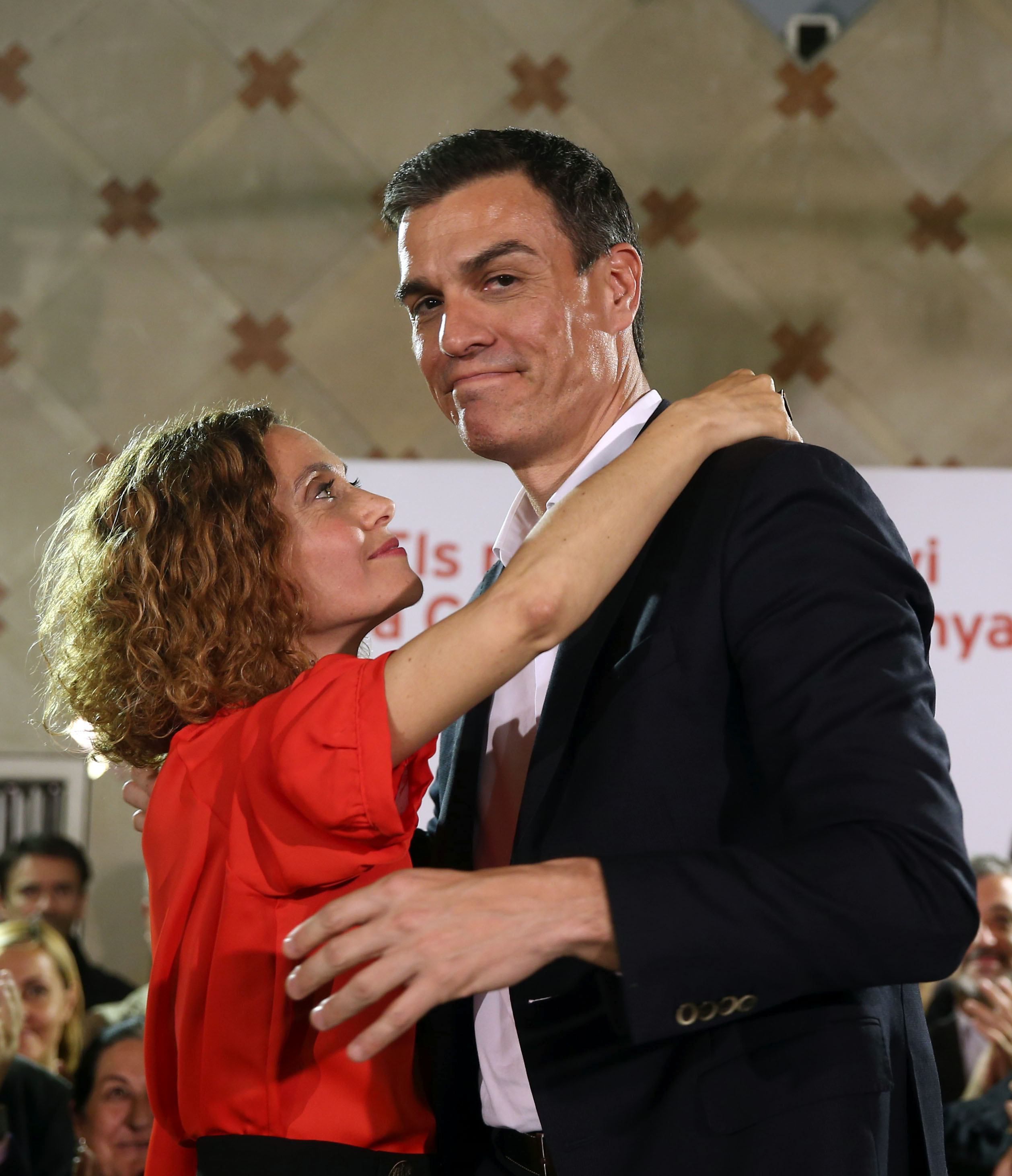The right to decide and, as such, a referendum or consultation so that the people of Catalonia can decide their political future will be off the table in the constitutional reform that Pedro Sánchez's new government is starting to look towards.
This was confirmed by the new Spanish territorial administration and civil service minister, Meritxell Batet. In an interview with RNE this Monday, she said that introducing the right to self-determination into any constitutional reform proposal doesn't fall within the Spanish government's plans. "We're not contemplating this possibility, in the way it's not contemplated by the majority of the world's constitutions." This weekend, statements have overflowed from Spanish cabinet ministers showing genuine panic towards the idea of holding a Scottish-style referendum to solve the conflict.
The referendum is, therefore, the red line in the negotiations the Spanish and Catalan governments plan to undertake. This dialogue will get underway in the upcoming meeting between Sánchez and president Quim Torra, the plan for which is taking shape under minister Batet and Catalan presidency minister and government spokesperson, Elsa Artadi, after last Friday's phone call between their bosses.
45 out of Puigdemont's 46 points
The new centre-left PSOE government will discuss 45 of the 46 points which Carles Puigdemont presented to Mariano Rajoy in April 2016, a list twice as long as Artur Mas's from July 2014. The point they refuse to consider is number 46, on self-determination.
Batet argued for constitutional reform forged by the commission in the Congress which is analysing the Spanish territorial model. In her opinion, its important that this commission hears from experts for "serious and rigorous analysis" of the situation and that there's "will from the political parties" because "without consensus, nothing will be reformed" and "we cannot move forwards".
For the minister, the reform is necessary because "the territorial crisis has only grown" in recent years, "to a large extent because the Spanish government denied the existence of the crisis and the possibility of looking for solutions or carrying out politics". Now, however, she says, "it's time".
Bringing back the Catalan Statute
As for the possible negotiation with Catalonia, Batet suggested Madrid could use organic laws to bring back articles of Catalonia's Statute of Autonomy which were struck down in 2010 by the Constitutional Court, an old PSC proposal. In Spain, an Organic Law (ley orgánica in Spanish) is a kind of law which requires an absolute majority to pass, used for certain policy areas. The minister said that the articles in question were declared unconstitutional "not because of their contents, but because the Statute wasn't the appropriate law to regulate the topic". She explained that some of the disputed articles encroach on the territory of certain organic laws.
"There's leeway here to work with, it's true that it affects organic laws, and that when we propose modifying this type of law, it has to be done from a perspective of consensus and very broad agreement, because they're not laws that can be modified thanks to a circumstantial majority. It's good for them to respond to a majority, cross-spectrum feeling," she said.
ERC and PDeCAT's positions
Meanwhile, ERC and PDeCAT used their press conferences after the meetings of their directing boards today to set out their stalls before talks start with Sánchez. ERC's spokesperson, Marta Vilalta, has said that her party supports "dialogue and negotiations without withdrawals or conditions". Everything must be discussed, that is "the challenge we give prime minister Sánchez", she said. "Our starting point is the defence of the country, of the 1st October [referendum] and of the right to self-determination".
PDeCAT's spokesperson, Maria Senserrich, also said that her party's starting point is the "1st October and the 21st December 2017", the latter referring to the Catalan election, which aren't to be found in proposals from "'78, from 2006 and previous eras", she said, a jab at Batet's proposal. "We want responses to the current reality, we're in 2018", she said.

